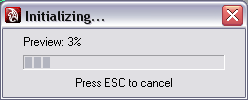^
not - (unary)
* /
+ -
..
< > <= >= ~= ==
and
or
All binary operators are left associative, except for `^´ (exponentiation) and `..´ (concatenation), which are right associative. Therefore, the following expressions on the left are equivalent to those on the right:
a+i < b/2+1 <--> (a+i) < ((b/2)+1)
5+x^2*8 <--> 5+((x^2)*8)
a < y and y <= z <--> (a < y) and (y <= z)
-x^2 <--> -(x^2)
x^y^z <--> x^(y^z)
When in doubt, always use explicit parentheses. It is easier than looking up in the manual and probably you will have the same doubt when you read the code again.


